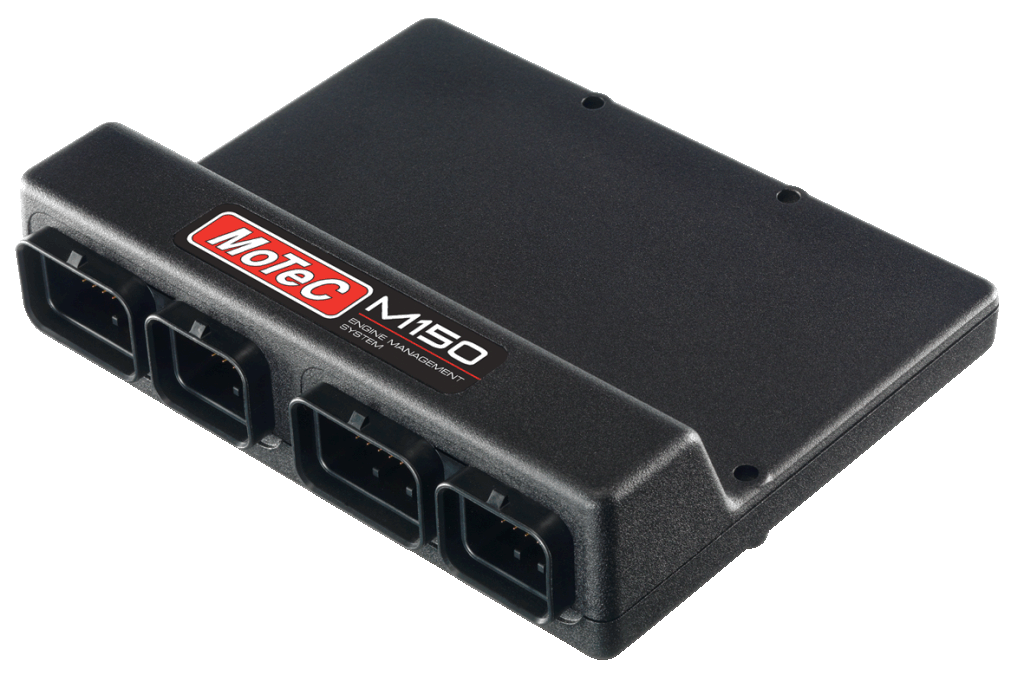Golf R32 MoTeC M1 Kit
The ePerformance MoTeC M1 kit represents the most advanced standalone ECU solution for the Volkswagen Golf R32. It is the only torque-based offering, providing precise powertrain control and factory-like DSG integration. Learn more about the benefits of torque-based engine control.
Includes:
MoTeC M150 ECU.
Custom firmware.
Adapter and patch loom.
Base map to suit stock engine.
Features:
Torque-based system enabling factory-like drivability, precise torque control and integration with powertrain components:
Fully tuneable torque maps including friction torque, with compensations for engine temperature and oil viscosity.
Torque-based systems including idle control for excellent stability, with integration of climate control and transmission modules for drag torque compensation and transmission engine speed synchronisation.
Torque control with crank synchronous (ignition timing and fuel cut) and air path (throttle and boost control) strategies.
Maximise engine power whilst minimising risk to engine components with safe torque limits, including component protection, e.g. oil temperature, gear.
Full integration with factory systems including:
DQ250 and DQ500 DSG transmissions with precise upshift torque reduction, downshift engine speed synchronisation (rev matching) and launch control. The system respects requests made by the TCU and synchronises any number of sequential downshifts.
ABS system including stability and traction control systems with torque reduction requests respected by the torque control system, if desired.
Haldex all-wheel drive system.
Electric power steering.
Instrument cluster functions as stock, including fuel consumption readout and check engine light customisable for various ECU warnings (e.g. oil pressure, engine knock).
Cruise control operates as factory.
Tuneable maps for exhaust flap and intake manifold flap.
Tuneable factory after-run electric water pump control.
Factory in-tank fuel pump control.
PWM fan control (MK5 only, MK4 has separate fan control module).
Factory sensors including oil temperature from thermal oil level sensor (if fitted), engine coolant temperature both at thermostat and radiator outlet, fuel level and ambient temperature.
Ability to monitor parameters from vehicle modules like steering angle, steering torque, brake pressure, acceleration, yaw rate, individual wheel speeds, vehicle speed, ABS/traction control/ESP intervention, Haldex clutch status and the like.
ECU features including:
Speed-density tuning system and live calibration of all parameters.
Ability to run a second fuel rail with 6 extra injectors.
Electronic throttle control (drive-by-wire) with ability to run larger throttle if desired.
Full intake and exhaust variable valve timing control.
Closed-loop fuel control and support for single, dual or per cylinder lambda sensors.
Closed-loop dual individual cylinder DSP knock control.
Closed-loop boost control.
Flex fuel support with ability to compensate for ethanol content and fuel temperature from flex fuel sensor.
Switchable throttle translation, ignition and lambda aim maps.
Closed-loop secondary PWM fuel pump control.
Engine protection features based on engine temperature, oil temperature, oil pressure, fuel pressure, boost pressure and the like.
Anti-lag.
No-lift shift (manual transmission).
Advanced transient fuel film model.
Advanced logging and analysis with MoTeC i2. 250 MB of onboard memory. Standard logging level 1 included, upgrades available.
Requirements:
The torque-based system requires two MAP sensors, with one located before the throttle measuring boost pressure and one after the throttle measuring manifold pressure.
It is strongly recommended to run closed-loop fuel control with a lambda-to-CAN module (LTC).
Extra diagnostic and engine protection sensors like oil pressure and fuel pressure may be added. In the latter case this can improve fuelling in the event of a fuel system issue.


